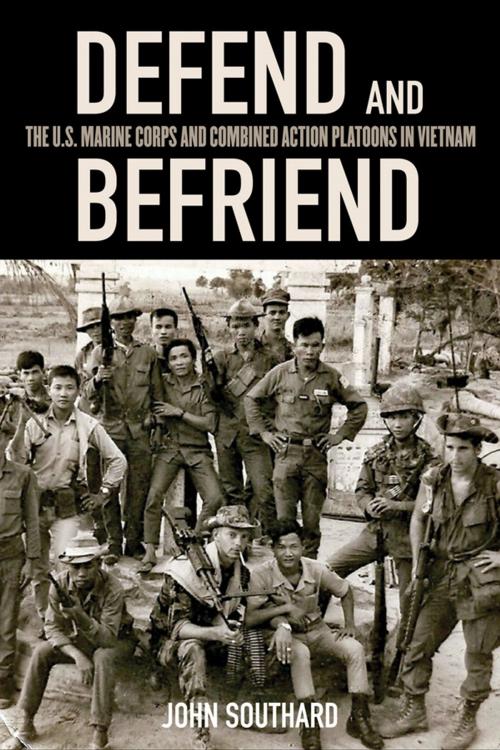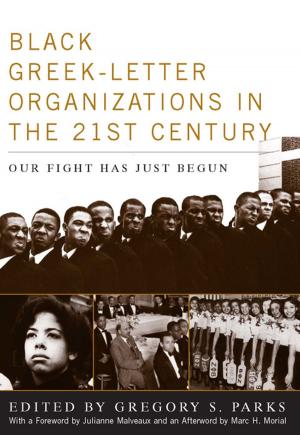Defend and Befriend
The U.S. Marine Corps and Combined Action Platoons in Vietnam
Nonfiction, History, Military, Vietnam War, Asian, Strategy| Author: | John Southard | ISBN: | 9780813145280 |
| Publisher: | The University Press of Kentucky | Publication: | May 28, 2014 |
| Imprint: | The University Press of Kentucky | Language: | English |
| Author: | John Southard |
| ISBN: | 9780813145280 |
| Publisher: | The University Press of Kentucky |
| Publication: | May 28, 2014 |
| Imprint: | The University Press of Kentucky |
| Language: | English |
After relatively successful military interventions in Iraq in 1992 and Yugoslavia in 1998, many American strategists believed that airpower and remote technology were the future of U.S. military action. But America's most recent wars in the Middle East have reinforced the importance of counterinsurgency, with its imperative to "win hearts and minds" on the ground in foreign lands. In both Iraq and Afghanistan, the U.S. military has studied and experimented with the combined action platoon (CAP) concept used from 1965 to 1971 by the Marine Corps in Vietnam.
Consisting of twelve Marines, a medic, and dozens of inexperienced local militiamen, the American contingent of CAPs lived in South Vietnamese villages where they provided twenty-four-hour security and daily medical support for civilians, and fostered social interaction through civic action projects, such as building schools, offices, and wells. Defend and Befriend is the first comprehensive study of the evolution of these platoons, emphasizing how and why the U.S. Marine Corps attempted to overcome the inherent military, social, and cultural obstacles on the ground in Vietnam. Basing his analysis on Marine records and numerous interviews with CAP veterans, author John Southard illustrates how thousands of soldiers tasked with counterinsurgency duties came to perceive the Vietnamese people and their mission.
This unique study counters prevailing stereotypes and provides a new perspective on the American infantryman in the Vietnam War. Illuminating the fear felt by many Americans as they served among groups of understandably suspicious civilians, Defend and Befriend offers important insights into the future development of counterinsurgency doctrine.
After relatively successful military interventions in Iraq in 1992 and Yugoslavia in 1998, many American strategists believed that airpower and remote technology were the future of U.S. military action. But America's most recent wars in the Middle East have reinforced the importance of counterinsurgency, with its imperative to "win hearts and minds" on the ground in foreign lands. In both Iraq and Afghanistan, the U.S. military has studied and experimented with the combined action platoon (CAP) concept used from 1965 to 1971 by the Marine Corps in Vietnam.
Consisting of twelve Marines, a medic, and dozens of inexperienced local militiamen, the American contingent of CAPs lived in South Vietnamese villages where they provided twenty-four-hour security and daily medical support for civilians, and fostered social interaction through civic action projects, such as building schools, offices, and wells. Defend and Befriend is the first comprehensive study of the evolution of these platoons, emphasizing how and why the U.S. Marine Corps attempted to overcome the inherent military, social, and cultural obstacles on the ground in Vietnam. Basing his analysis on Marine records and numerous interviews with CAP veterans, author John Southard illustrates how thousands of soldiers tasked with counterinsurgency duties came to perceive the Vietnamese people and their mission.
This unique study counters prevailing stereotypes and provides a new perspective on the American infantryman in the Vietnam War. Illuminating the fear felt by many Americans as they served among groups of understandably suspicious civilians, Defend and Befriend offers important insights into the future development of counterinsurgency doctrine.















